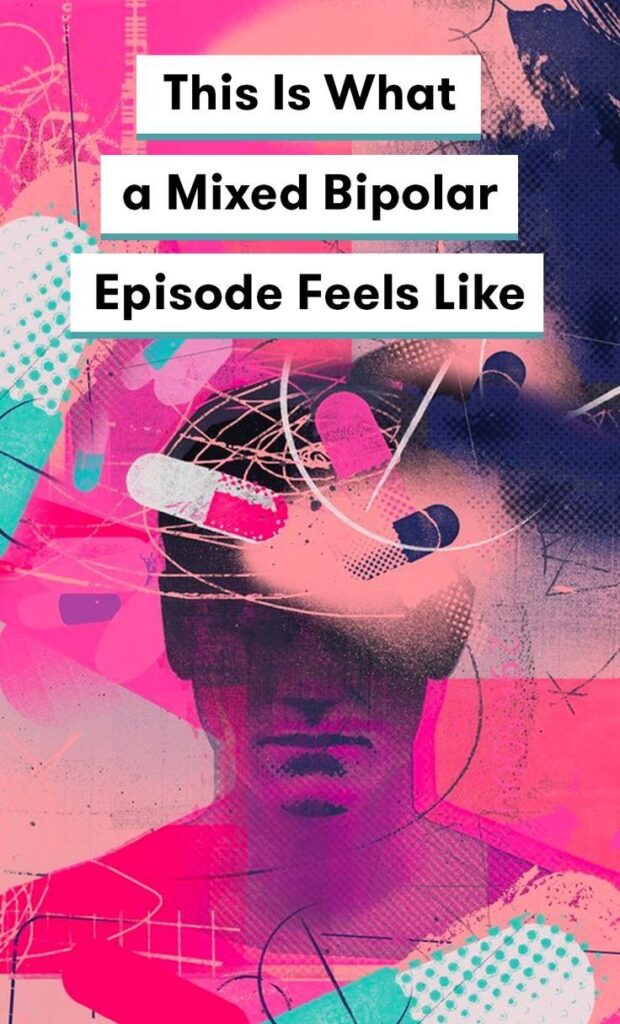Understanding Mixed Manic Episodes
Mixed manic episodes are part of a bipolar disorder category that, especially when it comes to diagnosis and treatment, presents a challenge. In this article, we shall try to explain the intricacies of mixed manic episodes-the characteristics, symptoms, and treatment involved.
What is a Mixed Manic Episode?
A mixed manic episode is a state of extreme emotional and psychic turmoil and encompasses symptoms of both mania and depression. This scarce condition simply presents itself through rapid cycling between mood swings, energy levels, and changes in cognition and is hard to differ from other bipolar disorders.
Symptoms of Mixed Manic Episodes
Those who are suffering from a mixed manic episode may experience the following criteria or symptoms:
Manic symptoms:
– Energy and activity increased
– Racing thoughts and rapid speech
– Restlessness and agitation
– Grandiose ideas and plans
– Increased sociability and impulsivity
– Depressive symptoms:
– Pervasive feelings of sadness and hopelessness
– Loss of interest in activities
– Changes in appetite and sleep patterns
– Fatigue and lethargy
Signature Features of Mixed Manic Episodes
There are several distinguishing features that mark mixed manic episodes from the other types of bipolar disorder:
Mood instability is characterized by frequent, unpredictable mood changes among the individual experiencing a mixed manic episode. Mixed emotional state: The combination of manic and depressive symptoms can lead to anxiety-like symptoms such as agitation and irritability. Cognitive impairment includes common aspects of memory lapses, problems concentrating, and slowed reaction times. Causes and Triggers of Mixed Manic Episodes
Although the exact causes of mixed manic episodes are not fully known, research has demonstrated that these conditions are most likely triggered by interrelated genetic, environmental, and psychological factors that may involve:
– Genetic vulnerability: Family history of bipolar illness
– Life stressors: Life traumatic events, relational problems, or extreme life changes
– Sleep disruptions: Inadequate sleep or disrupted patterns
– Medications: Steroids and/or antidepressant medications
Treatment Options for Mixed Manic Episodes
The key component of effective treatment for mixed manic episodes includes medication and therapy. Medications help control symptoms and include:
– Mood stabilizers: Lithium, valproate, or lamotrigine
– Antipsychotics: Olanzapine or risperidone
– Antidepressants: SSRIs or TCAs
Therapeutic approaches may include the following:
– Cognitive-behavioral therapy (CBT): Helps an individual learn to recognize negative thought patterns.
– Family-focused therapy: Basically, educates family members to cope with the condition of their loved one.
IPT involves emphasis on the improvement of communication skills and interpersonal relationships.
Mixed manic episodes are one of the most complicated dimensions of bipolar illness. It is necessary that proper diagnosis and appropriate treatment must be established through the symptoms, characteristics, causes, and triggers of the condition. Proper support and strategies related to a mixed manic episode require the ability of an individual to work with his or her health provider in devising the most appropriate course of treatment action. Thus, with mixed manic episodes, individuals are able to understand how to get through such highly distressing episodes in life with better quality.
References:
https://www.webmd.com/bipolar-disorder/mixed-bipolar-disorder
https://www.ncbi.nlm.nih.gov/books/NBK558998/
https://www.medicalnewstoday.com/articles/mixed-episode-bipolar
Websites:
Britmed Healthcare: https://britmedhealthcare.co.uk/
Nightingale Hospital: https://www.nightingalehospital.co.uk/
Top Doctors: https://www.topdoctors.co.uk/doctor/ahmed-el-missiry
You can also book, Contact us on WhatsApp 08009708017




